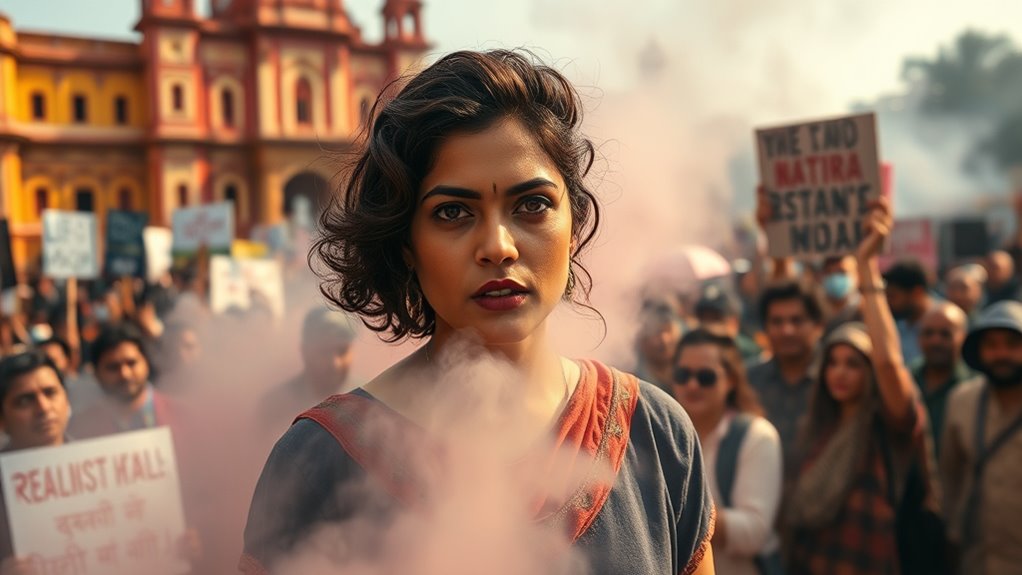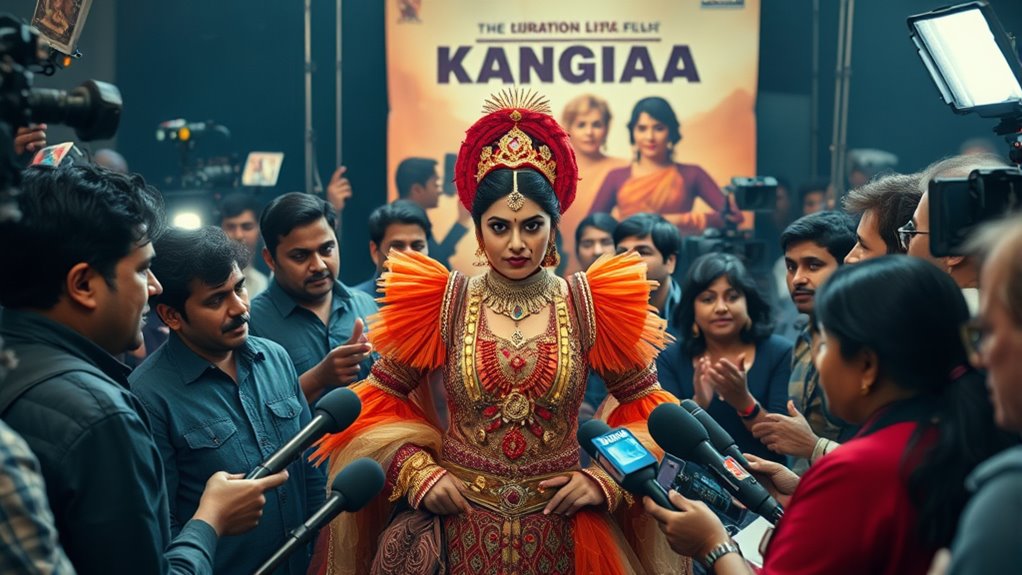Kangana Ranaut’s latest film, “Emergency,” is stirring up controversy, especially among the Sikh community. They claim the film misrepresents historical events from India’s Emergency period (1975-1977), leading to protests and legal action against Kangana. Financial struggles and delays have complicated its release, while public opinion remains divided; some praise her bold portrayal of Indira Gandhi, while others criticize her statements. If you want to know more about the film’s impact and the ongoing debates, you’re in the right place!
Key Takeaways
- Kangana Ranaut’s film “Emergency” has faced backlash from the Sikh community for perceived historical misrepresentation, leading to legal actions against her.
- Protests and disruptions occurred during screenings of “Emergency,” both in India and internationally, escalating concerns about misinformation and communal tensions.
- The film’s release was delayed multiple times due to certification issues and financial pressures, impacting the overall project timeline.
- Public opinion on “Emergency” is divided, with some praising Kangana’s portrayal of Indira Gandhi while others criticize her personal statements.
- The controversy surrounding “Emergency” has sparked broader political and social debates in India, overshadowing its artistic merits.

In recent weeks, Kangana Ranaut‘s film “Emergency” has stirred significant controversy, drawing attention for its portrayal of the Emergency period in India. This film, which she both directs and stars in as Indira Gandhi, focuses on a tumultuous time from 1975 to 1977. Despite its intriguing premise, the film has faced numerous challenges, including delays due to certification issues with the Central Board of Film Certification (CBFC), which have postponed its release multiple times.
As you delve into the film’s narrative, it’s essential to recognize the backlash it has received, particularly from the Sikh community. Organizations have accused Kangana of misrepresenting their history, leading to legal action against her. A court in Chandigarh issued a notice over allegations that the film tarnishes the image of Sikhs, igniting protests and disruptions in screenings both in India and abroad. Critics argue that “Emergency” risks spreading misinformation and inciting communal tensions, raising valid concerns about historical accuracy.
You might also be intrigued by the production challenges Kangana faced. The delays forced her to sell her Mumbai property, reflecting the financial pressures tied to the film’s release. Even amidst these hurdles, she’s maintained her stance, criticizing Indian politicians for their silence on the controversy. Her comments often attract significant media attention, especially given her position as a BJP MP. Yet, the party has distanced itself from some of her more controversial statements, further complicating her political narrative.
Public reaction to “Emergency” has been divided. While some viewers praise her bold portrayal of Indira Gandhi, others criticize her for perceived inconsistencies in her public statements, especially regarding issues like marriage and divorce. Social media has buzzed with both support and backlash, making it clear that opinions about the film—and Kangana herself—are far from uniform.
Additionally, a British MP’s support for Kangana’s right to free speech highlights the international dimension of this controversy. Yet, the Indian government hasn’t officially backed her film amidst the ongoing protests.
As you consider the film’s implications, the controversy surrounding “Emergency” has overshadowed its artistic merits for many, making it a focal point of heated discussions across various platforms.
In the end, you’ll find that “Emergency” isn’t just a film; it’s become a battleground for broader political and social debates in India.
Conclusion
Kangana’s latest film has certainly stirred up a whirlwind of debate, and you can’t help but feel the intensity of the discussions surrounding it. Whether you support her or criticize the film, it’s clear that it’s ignited strong emotions and conversations. It encourages you to reflect on the themes presented and how they resonate with society today. Ultimately, this controversy is a reminder of the power of cinema to challenge perspectives and provoke thought.









